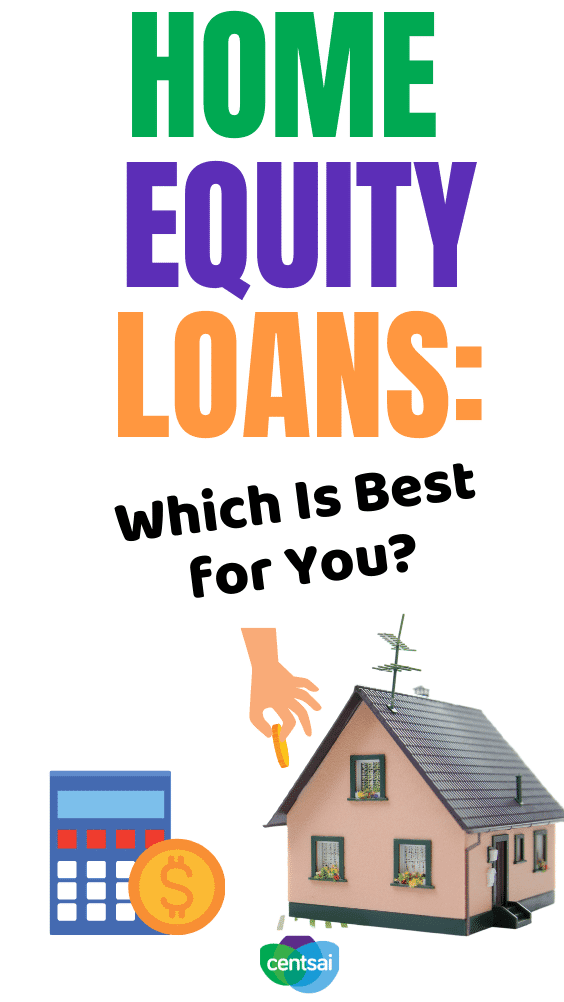Table of Content
It could be for a variety of reasons, but you might not qualify for a personal loan on your own. Perhaps it’s because you haven’t always been a responsible borrower, or maybe you just don’t have any credit history to speak of. Fortunately, there’s a way for people in your position to get the funds you seek while also strengthening your overall credit report. If you’d like to learn more about bad credit personal loans with cosigners, here’s everything you need to know. In order to qualify for a home equity loan, borrowers must first have a 20-percent ownership stake in the property.

Instead, you should find someone whom you trust to cosign the loan, like a spouse, guardian or friend. They need to have a higher credit score and income than you for cosigning the loan to make sense. Your cosigner needs to be someone trustworthy, like a parent, sibling or significant other. They should also have a higher credit score and higher income than you. A family member or friend isn't as likely to care if you don't have credit history.
Check Rates
A nonoccupant co-client with a solid employment history can help you fill this requirement. If you’ve been asked to co-sign a mortgage loan, ask your attorney how best to structure the transaction. In addition to Forbes, her work has appeared on HuffPost, Business Insider, Yahoo! Finance, MSN, The Motley Fool, U.S. News & World Report, TheStreet and more.

If you only need a few hundred dollars, you can always apply for a credit card for people with no credit. Then, you'll have a credit line to draw on whenever you need it, and the ability to carry a balance between months if necessary. This is a type of loan where the lender sets aside a certain sum of money in a savings account for you. Then, you pay that amount back in monthly installments and receive access to the account with all your money at the end. Plus, the lender reports to the credit bureaus each month, helping you build your credit score.
Co-Signers and Home Equity Loans
The operator of this website is not a lender, does not broker loans to lenders and does not make personal loans or credit decisions. This website does not constitute an offer or solicitation to lend. This website will submit the information you provide to a lender.

The lender will ask for some personal information from both of you, including your names, addresses and dates of birth. They will also need some financial information, such as your employment statuses and incomes. Keep in mind that the cosigner's income will matter more than the primary borrower's income during the application process. But they can be for much larger sums because the amount you can borrow is based on the value of your house minus the amount you have left to pay on the mortgage. So if your house is mostly paid off and is worth a lot of money, you could get a big loan. It's not common that someone would own a home yet have no credit history, but it is possible.
Editorial integrity
Ebony Howard is a certified public accountant and a QuickBooks ProAdvisor tax expert. If you opt for the loan route, make sure you draft up a legal agreement of your own. This reduces the likelihood that your relationship will sour over time if your co-signer feels like they aren’t getting paid back according to schedule. You don’t want to be thatfamily member they’re always hounding for cash.

For example, some online lenders allow applicants to qualify with scores as low as 580. However, a major downside of these loans is that you could receive an interest rate greater than 30 percent. Unlike an unsecured personal loan, it has an asset attached, such as a bank account or car, which a lender can seize if you don’t repay. This means it is less risky to the lender than an unsecured loan.
Were this not the case, having a cosigner on the loan—regardless of how high their credit score—wouldn’t matter much to the bank. But because the lender knows it can go after cosigners for overdue payments, that second signature can make a world of difference in the loan approval process. By cosigning the loan, you are not taking the loan out for yourself, but you promise to repay the loan if the borrower cannot. Although the debt isn't technically yours, it still appears on your credit report. This may affect your ability to borrow money for yourself in the future.

Unsecured personal loans allow you to borrow money without collateral. As a result, however, you’ll pay a higher interest rate, especially with damaged credit. Securing your loan with an asset, such as a bank account or vehicle, can lower your rate. If your credit history and your credit score leave a lot to be desired, you still have options when it comes to cosigned loans.
The lender will calculate the debt-to-income ratio using both credit reports and both sets of financial documents. If you qualify with the co-signer, the process will move forward. The co-signer uses his good credit history or higher income to secure the loan for the primary applicant.
Personal loans are more expensive, though, with APRs ranging from 6% to 36%. Receive a 0.25% rate discount when you set up and maintain automated payments from a qualifying PNC checking account. To receive the 0.25% interest rate discount, borrower or members of borrower's household must have an eligible checking AND savings account with KeyBank. The biggest risk for co-borrowing on a loan is that each co-borrower is responsible for repayment from the start.
But if you can't find someone to cosign for you, you still have options to get a personal loan. You can use WalletHub’s free personal loan pre-qualification tool to check your approval odds and potential rates with multiple lenders at once, without hurting your credit score. You should also ask your cosigner to check their pre-qualification status to give you a better idea of how much help they can be. Cosigners can face significant repercussions if the primary borrower can’t make good on his or her payments.

Providing your information on this website does not guarantee that you will be approved for a personal loan. The operator of this website is not an agent, representative or broker of any lender and does not endorse or charge you for any service or product. You might not have a person who can guarantee your loan, but you might have property. Collateral refers to something you own that you agree to give to the lender in case you default on the loan. Common secured loans include auto loans, mortgages and even some personal loans. A co-signer is a secondary person who agrees to pay back a loan in case the primary borrower defaults (i.e., doesn’t pay it back).
How We Make Money
Of course, the hope is that you would never end up in this situation. But if you do, it can damage your relationship along with both of your credit scores. Certain offers that appear on this site originate from paying advertisers, and this will be noted on an offer’s details page using the designation “Sponsored”, where applicable. Advertising status does not affect which offers show up on this page but may impact the order in which they appear.
If your credit is poor enough that you don’t qualify for a home equity loan on your own, a co-signer might be able to help. On paper, the co-signer is just as responsible for paying the loan back as you are, even if they don’t actually intend to make payments. If you fall behind on repaying the loan, their credit suffers along with yours. To qualify for a home equity loan, lenders typically require you to have at least 15 percent or 20 percent equity. Your equity level and combined loan-to-value ratio help determine how much you can actually borrow.

No comments:
Post a Comment